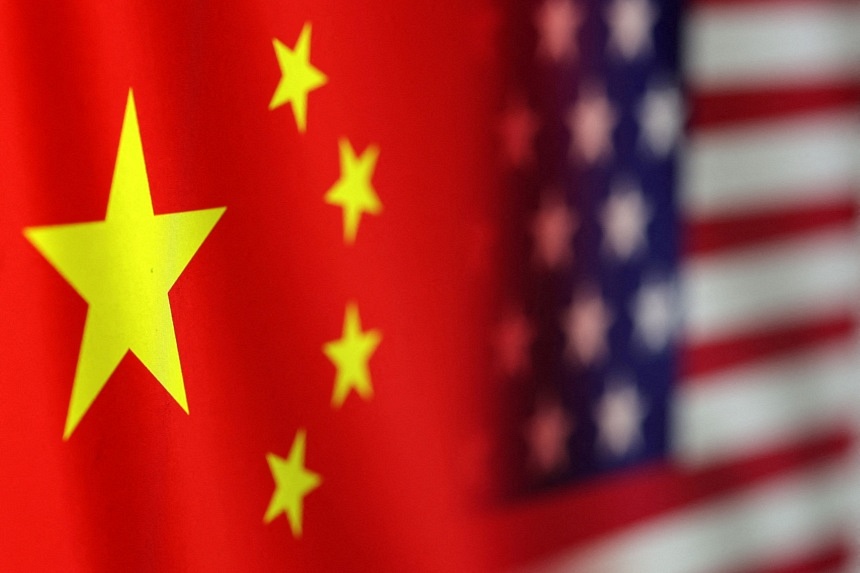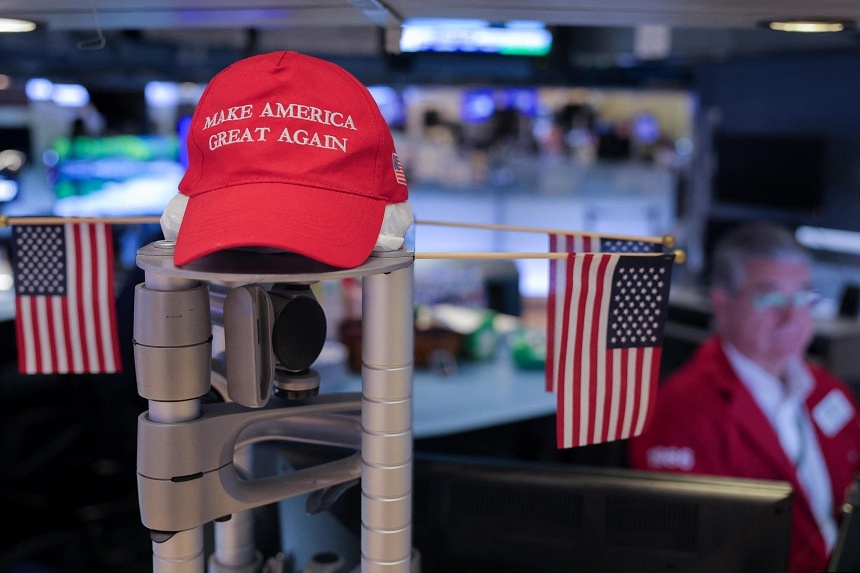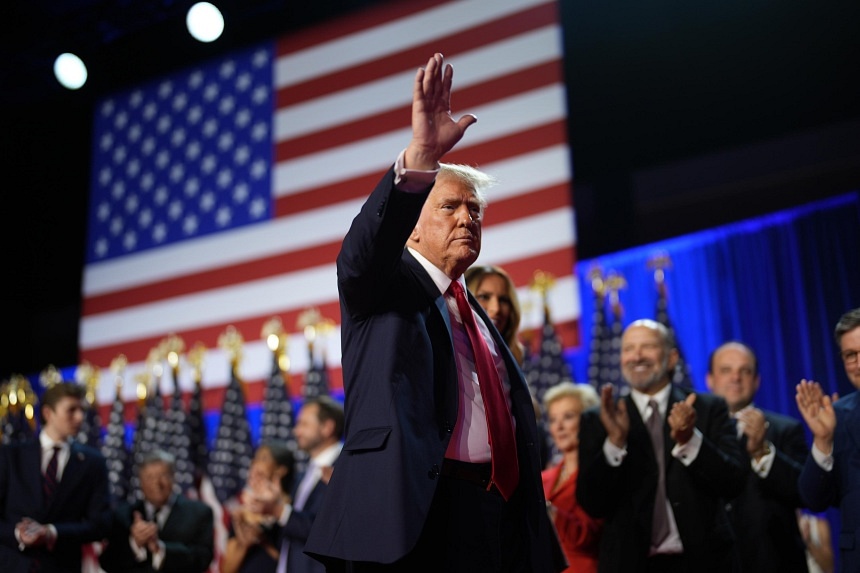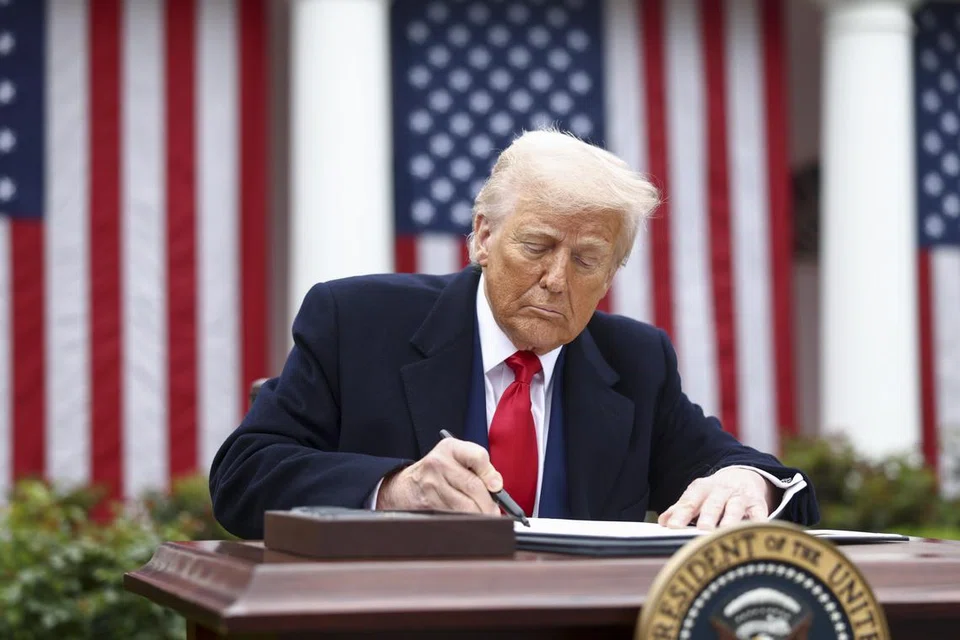- Joined
- Jul 25, 2008
- Messages
- 13,542
- Points
- 113
Adjusting to a bigger, more powerful China: SM Lee
It cannot be business as usual. Rules made decades ago will need to change, and attitudes too.
Lee Hsien Loong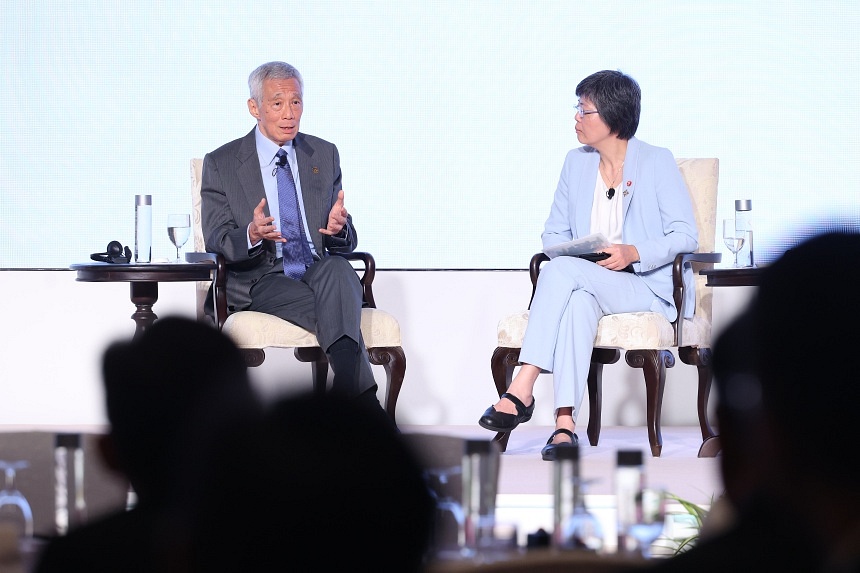
Senior Minister Lee Hsien Loong with moderator Lee Huay Leng, editor-in-chief of SPH Media’s Chinese Media Group, at the FutureChina Global Forum on Oct 18. PHOTO: LIANHE ZAOBAO
Oct 22, 2024
Given China’s considerable heft, the impact it makes globally as it changes is widely felt and hard to ignore. During a fireside chat at the FutureChina Global Forum on Oct 18, Senior Minister Lee Hsien Loong discussed different aspects of these changes, including the presence of Chinese companies in the region and Singapore. Edited excerpts of his remarks follow:
Adjustment issues
I think the fundamental issue – I would not say it is a problem – the fundamental issue is that China has changed so much from what it was, to what it is today.First, the size. When China started its Open Door Policy in 1978, it was a very small part of the world economy and a negligible part of international trade. Today, it is 20 per cent of the world economy and 20 per cent of global trade. So anything which China does, whether it is good or it is bad, the impact on other countries is enormous.
Secondly, China has developed and become much more advanced. In the earlier phase, it was growing, it was exporting. But it was making things which other countries wanted, needed and did not make themselves. You make clothing, you make belts, buttons, you make lower-end electronics products, assemble goods, things which other countries were happy to say: “Well, it is not economic for me to do. China can do.” But now China has moved up. All those products which are labour intensive and which it used to make, are migrating. They are going to Vietnam, they are going to Bangladesh, other Third World countries.
China is making EVs. You are making portable photovoltaic panels. You have got your pharmaceutical industries. You are in industries which are competing with similar advanced industries in the developed economies. It is a more competitive relationship and therefore China’s growth in these markets is not just benefiting the consumers, but also impacting the producers in other countries. And that is difficult. You have to accommodate somehow, but it is difficult.
Thirdly, because China has grown and developed so much, its interests around the world have also grown and developed. You have strategic interests, you have security interests, you have foreign policy interests in very faraway parts of the world. The Belt and Road Initiative includes countries in South America. And in Africa, China is very active. China’s interface with the rest of the world is multifaceted. And then the question comes: “Who is No. 1? Who is No. 2? How do No 1. and No. 2 work together? Can you work together?”
There is no doubt that for the world, we are much better off with China like it is today, than with China as it was 30 or 40 years ago or 50 years ago. But it means that there has to be an adjustment. It is not a matter of right and wrong. But it is in China’s interest, and it is in the world’s interest that this adjustment has to be made. What is the adjustment? It is to acknowledge that the situation has changed, that China’s heft, its influence, its impact on the world are on a different scale. And you have to make accommodations and adjustments to the rules, which were set up at a time when China was much smaller.
If you are a small economy and your exports actually do not threaten any of my industries, I am prepared to cut you a lot of slack. You can subsidise them, you can protect your own market. You can have all sorts of different privileges, which the more developed economies have decided not to have amongst themselves. But when you are now not so underdeveloped, and when you are huge, and when your exports can be maybe 80 per cent of the global manufacturing of photovoltaic panels, for example, then those concessions are no longer politically tenable. And it has to be worked out. It has to be re-negotiated so that you can have a good basis to do those things. I think that is very hard. That is one thing China has to do.
On the other side, on the part of the other countries in the world, you have to get used to the fact that there is going to be a very powerful and developed China in this world, a China which has advanced technologies, which is going to be world class in many areas and world leading in some. And we have to have some way to induct them into the global system and to accommodate their legitimate concerns and interests.
And if you do not do that, and you say, “No, I do not want China to be strong. I want it to remain always No. 2 or better still, No. 2.5”, I think that is going to head for a lot of mutual distrust and difficulties. But it is a very difficult adjustment to make, because if you are at 2.5, you wish to become 2. And when you reach 2, you may wish to become 1.5. And so how to have that balance and wisdom to maintain a cooperative relationship which will benefit both sides? I think that takes statesmanship of a very high order on the part of the major powers.
Does it help if China can explain itself better?
Talking is always useful. But at the same time, there has to be an acknowledgement of the real issues, the hard points: why there are differences with one another, and how we are prepared to accommodate one another. Because if I am not, if all my claims are indubitable and beyond question, and the other side says all my entitlements are also beyond doubt, then there is nothing to talk about. I make you a speech, and you make me a speech, and at the end we go away, both unhappy. So, it is necessary to have conversation, but it is also necessary to be able to make the accommodations and to take steps together, which can gradually build trust and resolve difficulties.Because of China’s size, sometimes China will feel: “But the other countries are doing it, why can I not?” And the answer is, well: “What to do? They are small, you are big.” When you are big, you have greater influence; but at the same time, there comes with it greater responsibilities and the need for restraint. Because in a world without an international order... it is the law of the jungle.
As Thucydides said: “The powerful do what they will, and the weak suffer what they must.” But if the world were like that, everybody is worse off, including the powerful ones, because they will fight each other to the death. So, the great countries, the big countries, have to have a certain self-awareness and restraint and say: “Well, I am entitled to this, if you consult your lawyers and international law. But I restrain myself. I am not only aiming to be stronger than others, but also to be accepted, respected, and if possible, to have others also admire me and want to have me as their friend.”
Stimulus packages and effect on growth
I think that the stimulus packages will be helpful in boosting confidence and then perhaps simulating demand to the extent that the money will be spent, and then there will be some multiplier. But I think inherently, at this phase, China’s economy will grow slower than it used to. It used to grow 8 per cent to 10 per cent a year, sometimes even more than that. Now, if you can sustain 5 per cent per year for another 10 years, I think you are doing well, and there are fundamental reasons for that.First of all, you are already more mature. It is not so easy to keep on just transforming yourself. Secondly, the labour force is not expanding anymore. The total population has peaked, the working age population has also peaked. It has levelled off, probably starting to come down already, slowly. And so, you can no longer just have a natural expansion of the economy. Thirdly, I think, with the external environment having turned less favourable, there are geostrategic tensions between China and America, even China and Europe. And so that external environment is not as favourable as before. The foreign investments need more encouragement to come into China. The export markets are not as open as they used to be. So that is another factor which influences China – not just the growth, but also the upgrading and transformation.
Fourth, partly in response to this external environment, but also for domestic reasons – I think the Chinese government’s priorities have shifted some. During an earlier phase, the slogan was “发展是硬道理” – Economic development is the top-most priority, is the hard truth. But now, economic development is very important, but trumping that is national security. And I think equalling that, at least, are domestic political considerations. In that situation, I think the environment for people to spend, for companies to start up, or for big companies to build new businesses... will be more cautious. It is inevitable.
The government will give reassurances that they do want the private sector to have an important role. They do want entrepreneurs to have confidence. But the national security considerations are important. The political considerations cannot be ignored. And that has an impact.
Underestimating China – and the West
I think it is very unwise to write off China. This works in both directions. The Westerners say: “We will do this and the other, and China will stay down.” I tell them they are wrong. They do not fully believe me. When I go to China, and sometimes, the confidence with which my hosts expound their views causes me to tell them: “You know, the Americans have a lot of problems. You can see all of the problems, but they have a lot of strengths, and sometimes you cannot see all of their strengths. And they are not going to disappear, and they will be there and formidable, I think, for a very long time to come.” And I am not sure whether they fully understand why I am saying this, so I think both sides have this danger of underestimating the other.Impact of Chinese companies on South-east Asia
China is huge. Its impact on South-east Asia is very large. When their companies come, it means that they provide good products, good services, fierce competition for our companies, for our industries, for our economies. In fact, we send our trade unionists and trade union leaders to China, to visit Shenzhen, to visit Yangshan, to visit your high-tech centres, to visit, to see the factory lines – Fosun – to understand the drive, the hunger, the transformation which is taking place and how advanced China is already. And they come back and they understand why we have to work hard, and work harder.I think the answer should be: you have to work harder. It will be an impetus for us to upgrade, transform our companies, train our people, retrain our people, be competitive and meet the best in the world. And I think we can do that.
Is the Government concerned about talk of ‘Singapore washing’?
Well, we do not usually use labels like that. We have companies in Singapore from all over the world. We welcome reputable companies to come here and to make use of our business environment, our pro-business climate, our infrastructure, our networks, and to contribute to Singapore’s prosperity and link us to all parts of the world. So if the Chinese come, they are good companies – they create jobs, they pay well, they bring technology, they bring markets – I say “come”. The Americans come, I say the same; the British come, I say the same; the Japanese come, they are all here.But nobody believes that just because the company is in Singapore, that means it is a Singapore-owned company. We have got Dyson here. We have got General Electric here. We have got Citibank here. We have got all the major Japanese multinationals here. Everybody knows that they are Japanese, American, British companies.
So when TikTok is in Singapore, everybody knows that TikTok’s parent is ByteDance and TikTok’s origins are in China. The CEO may be a Singaporean, but Singaporeans work for companies belonging to all kinds of shareholders. So on that basis, you are welcomed in Singapore. But of course, we would like to know where you come from and what your antecedents are. Because if it turns out that you are not the one we think you are, we also would like to make a few more inquiries.

